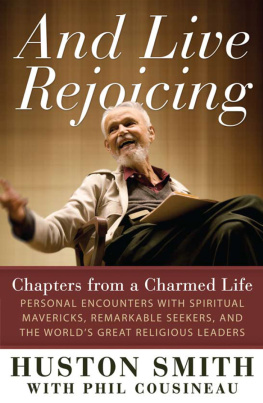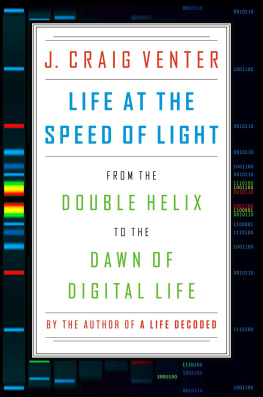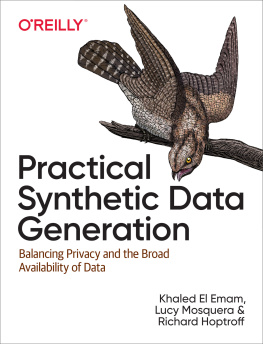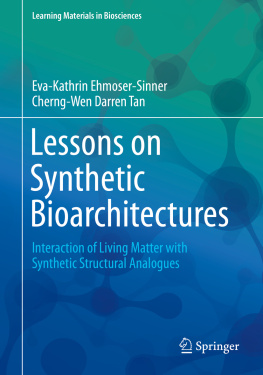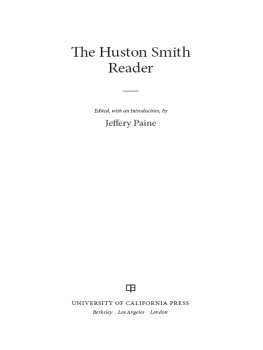C.A.P. Smith - Working Through Synthetic Worlds
Here you can read online C.A.P. Smith - Working Through Synthetic Worlds full text of the book (entire story) in english for free. Download pdf and epub, get meaning, cover and reviews about this ebook. year: 2009, publisher: Ashgate, genre: Romance novel. Description of the work, (preface) as well as reviews are available. Best literature library LitArk.com created for fans of good reading and offers a wide selection of genres:
Romance novel
Science fiction
Adventure
Detective
Science
History
Home and family
Prose
Art
Politics
Computer
Non-fiction
Religion
Business
Children
Humor
Choose a favorite category and find really read worthwhile books. Enjoy immersion in the world of imagination, feel the emotions of the characters or learn something new for yourself, make an fascinating discovery.

- Book:Working Through Synthetic Worlds
- Author:
- Publisher:Ashgate
- Genre:
- Year:2009
- Rating:5 / 5
- Favourites:Add to favourites
- Your mark:
- 100
- 1
- 2
- 3
- 4
- 5
Working Through Synthetic Worlds: summary, description and annotation
We offer to read an annotation, description, summary or preface (depends on what the author of the book "Working Through Synthetic Worlds" wrote himself). If you haven't found the necessary information about the book — write in the comments, we will try to find it.
Working Through Synthetic Worlds — read online for free the complete book (whole text) full work
Below is the text of the book, divided by pages. System saving the place of the last page read, allows you to conveniently read the book "Working Through Synthetic Worlds" online for free, without having to search again every time where you left off. Put a bookmark, and you can go to the page where you finished reading at any time.
Font size:
Interval:
Bookmark:
WORKING THROUGH SYNTHETIC WORLDS
Edited by
C.A.P. SMITH
Colorado State University, USA
KENNETH W. KISIEL
Lockheed Martin Corporation, USA
&
JEFFREY G. MORRISON
Space and Naval Warfare Systems Center Pacific, USA
ASHGATE
C.A.P. Smith, Kenneth W. Kisiel and Jeffrey G. Morrison 2009
All rights reserved. No part of this publication may be reproduced, stored in a retrieval system or transmitted in any form or by any means, electronic, mechanical, photocopying, recording or otherwise without the prior permission of the publisher.
C.A.P. Smith, Kenneth W. Kisiel and Jeffrey G. Morrison has asserted their right under the Copyright, Designs and Patents Act, 1988, to be identified as the editors of this work.
Published by
Ashgate Publishing Limited
Wey Court East
Union Road
Farnham
Surrey, GU9 7PT
England
Ashgate Publishing Company
Suite 420
101 Cherry Street
Burlington
VT 05401-4405
USA
www.ashgate.com
British Library Cataloguing in Publication Data
Working through synthetic worlds.
1. Virtual reality in management. 2. Virtual corporations.
I. Smith, C. A. P. II. Morrison, Jeffrey G. III. Kisiel, Ken.
658.0568-dc22
ISBN: 978-0-7546-7712-3 (hbk)
ISBN: 978-0-7546-9430-4 (ebk)
ISBN: 978-1-4094-8619-0 (ebk-ePUB)
Library of Congress Cataloging-in-Publication Data
Working through synthetic worlds / edited by C.A.P. Smith, Jeffrey G. Morrison, and Kenneth W. Kisiel.
p. cm.
Includes index.
ISBN 978-0-7546-7712-3 (hardback) -- ISBN 978-0-7546-9430-4 (ebook)
1. Human-computer interaction--Technological innovations--Forecasting. 2. Virtual reality--Technological innovations--Forecasting. 3. Virtual reality in management--Forecasting. I. Smith, C. A. P. (Charles Adams Plater), 1956- II. Morrison, Jeffrey G. III. Kisiel, Kenneth W.
QA76.9.H85W645 2009
004.019--dc22
2009026052

Printed and bound in Great Britain by TJ International Ltd, Padstow, Cornwall
C. A. P. Smith
Paul R. Messinger, and Xin Ge
Richard Brath, Mike Peters, Joseph MacInnes, and William Wright
Michael Osias, Joan L. Mitchell, Donna Eng Dillenberger, David Ward, and Sandra K. Johnson
John W. Bodnar, Russ Vane, and Brian Rogers
Warren Tignor
Vadim Slavin, Randy Stiles, and Thomas Trinko
John Miller, Greg Nuyens, John Light, and Cynthia Pickering
Ed Waltz
Jeffrey G. Morrison, Kenneth W. Kisiel, and John DeBello
Robert Rice
Kenneth W. Kisiel
Selmer Bringsjord and Alexander Bringsjord
Maria T. Schultheis, Lisa K. Simone, and Ana C. Merzagorra
Diana Burley
Peter Garretson and Nathan T. Denny
Ben Goertzel
Robert Cox, Patricia Crowther, and John Campbell
Judi McCuaig, Joe MacInnes, and William Wright
Theresa A. OConnell, Elizabeth D. Murphy, and Renate Roske-Shelton
Jeffrey M. Stanton
Richard Brath is a Partner at Oculus Info Inc. He has been actively involved in the design and development of information visualization and design software over the last twenty years with an emphasis on creating innovative visual solutions that solve real-world business needs from conception and design through to full enterprise-scale implementations deployed to hundreds of thousands of users. Richard originally acquired a Bachelor of Architecture from University of Waterloo and produced international award-winning architectural designs. He transferred and extended those skills to design for special effects, information visualization and human computer interaction at the same time as acquiring a Master of Computer Science from University of Toronto. Richard is a frequent contributor to information visualization research conferences and was a recent keynote speaker at IEEEs IV09.
John W. Bodnar is a Senior Biological Warfare Analyst at SAIC, McLean, VA. His interest in analytical methods and tools for biology and for the Intelligence Community comes from previous experience conducting biological warfare analysis at the Defense Intelligence Agency, analyzing the Revolution in Military Affairs as a Navy Reservist for the Office of Naval Research and the US Naval War College, and researching and teaching biochemistry and bioinformatics at Northeastern University, the US Naval Academy, and Stevenson University.
Alexander Bringsjord is a Junior at Rensselaer Polytechnic Institute (RPI) majoring in management and philosophy, and carrying out research mostly in the following areas: advanced synthetic characters, the fundamental nature of the human mind, and the formal foundations of economics. He has a special interest in the legal and ethical aspects of autonomous agents.
Selmer Bringsjord specializes in the logico-mathematical and philosophical foundations of artificial intelligence (AI) and cognitive science, and in building AI systems on the basis of formal reasoning. He received the bachelors degree from the University of Pennsylvania, and the PhD from Brown University in 1987, where he studied under Roderick Chisholm. Since 1987 he has been on faculty in the Departments of Cognitive Science and Computer Science at Rensselaer Polytechnic Institute (RPI) in Troy, New York, where as a Full Professor he teaches AI, formal logic, human and machine reasoning, and philosophy of AI. Dr. Bringsjord is the author of papers ranging in approach from the mathematical to the informal, and covering such areas as AI, logic, gaming, philosophy of mind, and ethics. He has lectured and interviewed in person, and on television and radio, across the globe.
Dr. Diana L. Burley is Associate Professor, Director of the Center for the Study of Learning and the Executive Leadership Doctoral Program at The George Washington University. She holds a Ph.D. in Organization Science and Information Technology, and an M.S. in Public Management and Policy from Carnegie Mellon University. For more than 15 years, Dr. Burley has examined the social and organizational implications of new information and communication technologies. She is widely published in the areas of knowledge management, electronic government, and IT workforce development; and has received competitive research grants from several sources including the US National Science Foundation (NSF) and the PriceWaterhouseCoopers Center for the Business of Government. Dr. Burley served as an NSF program director where she managed multi-million dollar grant programs in computer science education. Based on her work, she was honored by the US Federal Chief Information Officers Council for outstanding effort toward the development of US Federal IT workforce.
John Campbell is Associate Professor of Information Systems in the Faculty of Information Sciences and Engineering at the University of Canberra. A major theme throughout his research work is how users interact through information systems in the social world and, in particular, the ways in which organizational decision-making and community interaction are enacted through collaborative technologies. He has published articles in various journals including
Next pageFont size:
Interval:
Bookmark:
Similar books «Working Through Synthetic Worlds»
Look at similar books to Working Through Synthetic Worlds. We have selected literature similar in name and meaning in the hope of providing readers with more options to find new, interesting, not yet read works.
Discussion, reviews of the book Working Through Synthetic Worlds and just readers' own opinions. Leave your comments, write what you think about the work, its meaning or the main characters. Specify what exactly you liked and what you didn't like, and why you think so.

